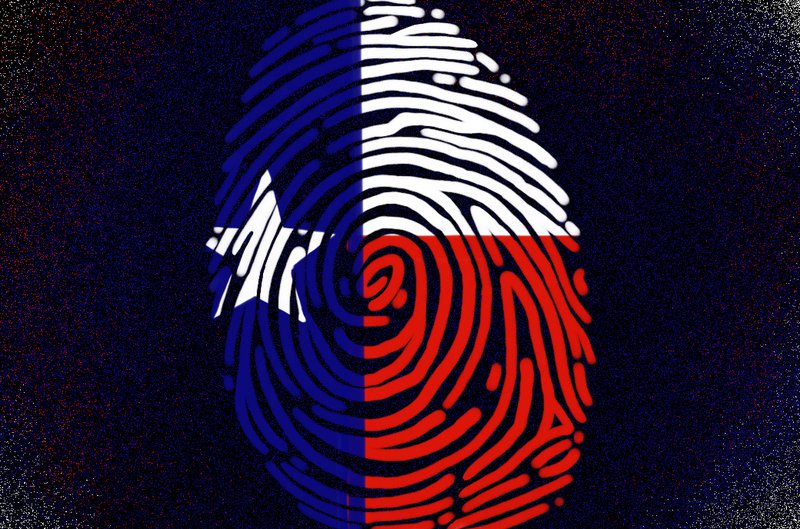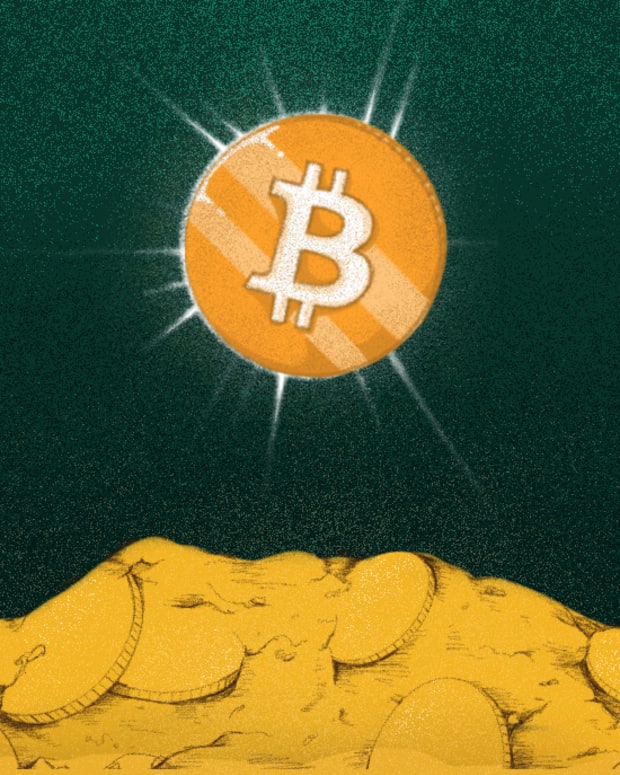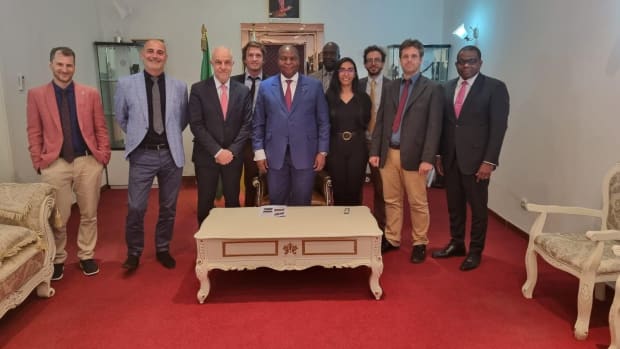Doctor Bitcoin, Jailed For Selling P2P, Warns Others They’ll Be Next
Bitcoin educational persona Doctor Bitcoin explains his recent arrest for selling BTC and warns that the government won’t stop with him.
In 2011, journalist and tech entrepreneur Mark Hopkins shared dinner with a longtime friend who offered to pay for his half of the meal by sending Hopkins some newly-minted bitcoin, which the friend had mined himself on his laptop. In a recent telephone interview with Bitcoin Magazine, Hopkins quipped that he had never heard of the world’s first peer-to-peer cryptocurrency before, but “being a good nerd myself,” he had his laptop with him and downloaded the needed hardware to accept the offer (about half a bitcoin to cover a coffeehouse meal — “13 or 14 bucks’” worth of magic internet money — if you were wondering).
That transaction began a years-long journey down the Bitcoin rabbit hole for Hopkins, launching an “O.G.” path which included adopting the online teaching persona of Doctor Bitcoin, becoming vice president of Geosyn Mining (based in Fort Worth, Texas) and selling his personally-mined bitcoin for many years to interested parties, in person for cash or through completely above-board bank wires.
Hopkins said that his interest in selling bitcoin was “mostly to meet people” for networking purposes, and that he rarely bothered to profit except on the largest deals, but instead focused on turning higher-net-worth buyers into long-term clients for his marketing company.
Hopkins noted that at the time, there was “no federal guidance at all” regarding bitcoin sales, so he regularly sought counsel from Texas lawmakers, who assured him (and published 2017’ Memorandum 1037 stating) that they would not be requiring licenses or regulating the sale of bitcoin in the state. In fact, they encouraged Hopkins and others to “bring innovation to Texas,” Hopkins said.
Yet on September 5, Hopkins announced via his Twitter account that he would be reporting to the Beaumont Federal Correctional Institute “for the crime of selling #Bitcoin a few years ago.”
“A Kingpin In A Lottery Scam”
The arrest raised questions about what crime Hopkins had committed, exactly, particularly if he had obtained assurance from Texas lawmakers that he was operating within the law.
In 2019, the Financial Crimes Enforcement Network (FinCEN), a federal bureau of the U.S. Department of the Treasury, published 18 USC 1960, which requires that the now well-known “money transmitters’ license” be obtained by those who wish to sell bitcoin and other cryptocurrencies to the public, with a suggested penalty of up to five years’ imprisonment for selling bitcoin without obtaining the license. This is the crime that Hopkins said he is now serving time for, but selling bitcoin is not the activity that originally caught the attention of federal law enforcement.
Hopkins reports that one of his past clients was under observation for suspected participation in a Nigerian lottery scam. The buyer originally told Hopkins that she was buying bitcoin “for her husband’s electronic repair business” (he believed her at the time), although she later told investigators that she was herself “being catfished by a Nigerian,” according to Hopkins.
Charitably described by Hopkins as “an unsophisticated user,” he not only sold bitcoin to this client on around 20 separate occasions, he also patiently aided and educated her in best custody practices, as well as how to not “trigger” banking problems by using specific terms which could result in closure of her bank account (which is a fairly common occurrence and known concern for Bitcoin enthusiasts, particularly at that time). According to Hopkins, Prosecutors later disingenuously charged him with teaching this woman “how to commit bank fraud.”
On suspicion of Hopkins somehow being “a kingpin in a lottery scam” because of the amounts of money “flowing to” him, Hopkins’ family home was subjected to a raid by “15 armed agents, who waved guns and search warrants…” and who confiscated over $60,000 worth of his personal property, Hopkins said.
Being cooperative and “fully transparent” during the raid, Hopkins said that he informed the federal agents of his public Doctor Bitcoin and professional LinkedIn profile, and he shared details of his past consulting work with multiple U.S. governmental agencies (including the Federal Reserve) on bitcoin and blockchain technology. Hopkins claimed that he even explained in person to the raiding agents some best practices for using bitcoin wallets (e.g., auto-generating new addresses at random with every new use), finding himself quite surprised that agents of this white-collar crime division were not already well-versed in such tech.
Based on his credentials and nature of his work (and especially his professed innocence of the lottery scam that was actually under investigation), Hopkins was certain that these agents would soon come to understand that they “definitely have the wrong guy” and would even apologize.
However, Hopkins states now that “what likely happened” was that “they spent so many resources rolling out 15 agents to a guy’s house to solve a major crime and came up empty, so they had to find something that I was guilty of” to avoid egg on their faces, and that his named crime became “operating a money transmitters’ business without a license, based on some vague guidance given by FinCEN … about a year earlier.”
As the case progressed, Hopkins says “they decided to not come just after me, but my wife because she was on my bank account” threatening them both “not just with the money transmitter offense” but for the bank-related advice given to his client, which could result in 35 years’ imprisonment for both Mr. and Mrs. Hopkins.
“The Government Fights It Hand, Tooth And Nail”
Hopkins now believes the agents are guilty of “prosecutorial misconduct or extortion, depending upon how you want to look at it” for offering to leave his wife and three children out of the proceedings if he agreed to plead guilty to selling bitcoin without the required money transmitters’ license. But he added that, despite defending what’s right or wrong, “I can’t leave my family (or) take a gambit like that; my family comes first regardless of what my principles are.” And so he accepted the plea deal.
In the wake of his sentencing, Hopkins is using his Twitter account and media interviews to warn others of “the encroaching state war on privacy, and the general brokenness of the criminal justice system.”
“I mean start with Ross (Ulbricht); start with (Julian) Assange; start with (Edward) Snowden. Look at what’s going on with the Tornado Cash developer (Alexey Pertsev), the delisting of Monero from various exchanges (and) every attempt to enhance privacy — and not just in cryptocurrency — but cryptography in general the last 20 to 30 years. The government fights it hand, tooth and nail. It’s frankly getting old, because people like us … get caught in the crossfire.”
Calling for “separation of money and state,” Hopkins warned that because the Bitcoin blockchain is a permanent record, more government forces (including the newly-staffed Internal Revenue Service) will be coming for many more Bitcoiners based on old transaction history if they do not contact their legislators and “hold their feet to the fire” to protect existing First Amendment principles and privacy laws. He warned that 18 USC 1960 (the money transmitters’ license requirement) is an “existential threat… It is there every time someone transacts peer-to-peer … such as buying a truck with bitcoin, or if I split dinner with you and you pay for your half with bitcoin, you’re committing a federal crime.”
“You can see very clearly there’s an uptick” in prosecuting 18 USC 1960 cryptocurrency-related crimes, he said. And the targeting of those to charge or prosecute is “moving away from major case crimes. The Department of Justice,” Hopkins maintained, holds “clinics on how to apply the law more liberally.”
In addition to highlighting his own case, Hopkins is now actively involved with FreeRossDAO (working to free Ulbricht, who founded early Bitcoin darknet marketplace Silk Road, from prison). Hopkins said that Ulbricht is “a martyr,” whose legal situation far outweighs his own, saying, “I sold some bitcoin, I used money in a way that government didn’t like. My life is crappy today but … it’ll be better in a year. But Ross will still be in prison.”
“If we … do not demand from our government that they change this law and the application of it, given time they can come after every one of us,” Hopkins added.
Hopkins’ son will be maintaining his father’s Twitter account while Hopkins serves his sentence.
This is a guest post by Guy Malone. Opinions expressed are entirely their own and do not necessarily reflect those of BTC Inc or Bitcoin Magazine.









